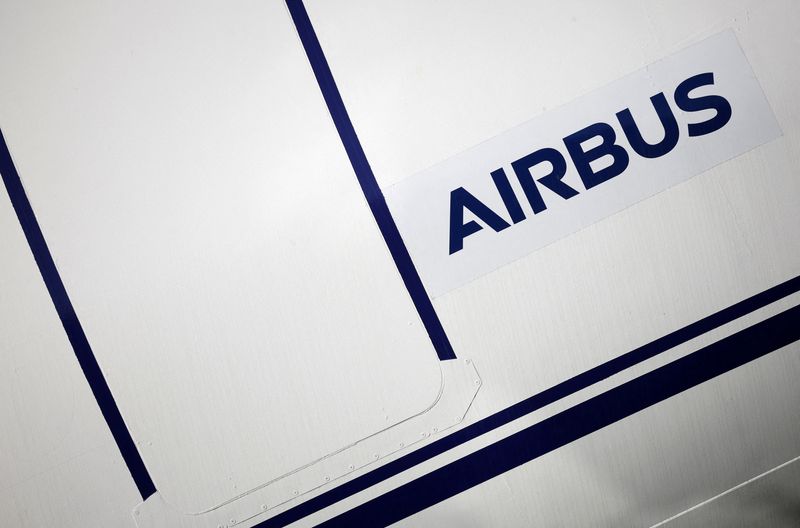By Tim Hepher
PARIS (Reuters) - Europe's Airbus on Wednesday highlighted the impact of growing trade tensions after Europe followed the United States in increasing tariffs on Chinese electric vehicles.
Asked to comment on a European Commission decision to impose extra duties of up to 38.1%, a spokesperson for the world's largest jetmaker did not comment directly on the move but said that trade tensions were challenging for global businesses.
"We see increasing tensions on trade around the world and these are testing the resilience of global companies such as Airbus," the spokesperson said in an emailed statement.
"We sell to customers globally. Trade tariffs increase complexity and costs for our supply-chain, Airbus and for our customers," the statement added.
Airbus has recently been in talks with China over a major potential airplane order, Reuters reported in April.
Speaking before the EU announcement, two people familiar with the matter said the two sides had been exploring a potentially historic deal for as many as 600-750 aircraft.
But analysts note that bulk plane orders from China's state buying agency tend to include a mixture of new business and repeat announcements and that the timing of such announcements reflects the ebb and flow of trade relations.
Chinese foreign ministry spokesperson Lin Jian said earlier the EU's action would damage China-EU economic cooperation.
A third industry source, speaking after the EU announcement, said an imminent sale to China appeared increasingly ambitious amid the trade spat and political uncertainty in Europe.
Airbus said it never comments on aircraft negotiations.
China's CASC state buying agency could not immediately be reached out of hours in Beijing.

Bloomberg News reported last week that Airbus was discussing an order for 100 wide-body planes from China.
China has historically roughly split its import needs between Airbus and its U.S. rival Boeing (NYSE:BA), but Chinese orders for Boeing planes have been scarce in recent years - a period coinciding with turbulence in China-U.S. relations.